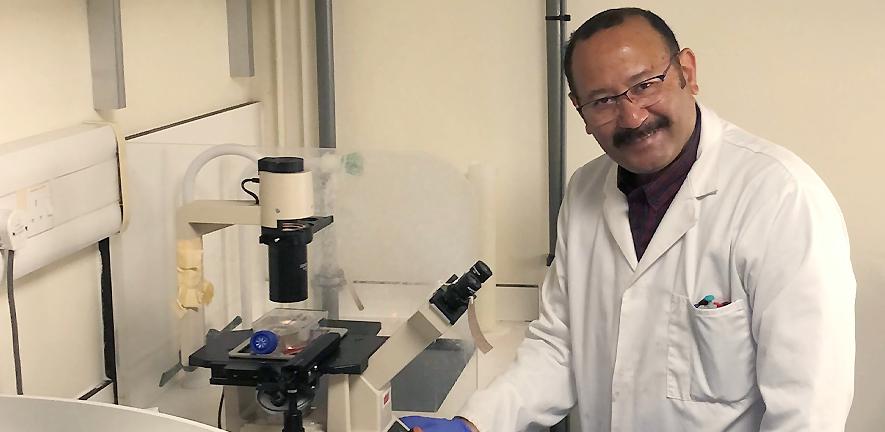
COVID-19 diagnostics for Africa
Management of people movement, containment of disease spread, and care of the ill requires correct diagnosis of COVID-19 and information about the person's stage in the disease pathway. These problems are particularly severe for the burgeoning COVID-19 outbreaks in Africa.
This project, funded by the European and Developing Countries Clinical Trials Partnership (EDCTP) and coordinated by Professor Lisa Hall (Department of Chemical Engineering and Biotechnology, University of Cambridge), will provide reliable diagnostic systems for the clinical diagnosis of COVID-19 in Africa from first infection through to recovery and immunity. The diagnostics will be developed to become manufactured locally in low resource environments, without major capital investment, using unique biological reagents produced in Africa.
The project will give sub-Saharan Africa the technology, tools and training which will strengthen its capacities to manage outbreaks, both directly and through the improved in-country manufacturing capability for healthcare diagnostics. Socioeconomic long-term independence from external grant-aid to supply diagnostics and development of a local manufacturing infrastructure will emerge.
The work is a multi-centre collaboration between Cambridge and research groups in continental Europe and Africa. The project's deliverable aims and objectives are as follows:
- Develop a point of care amplification assay (POC LAMP) for the detection of viral RNA (SARS-CoV-2) for use in the COVID-19 testing laboratories in Ghana.
- Develop a production process for the local manufacture in Ghana of the required biological materials at low cost, and produce a version of the assay in Africa for Africa (AfriDx).
- Screen and isolate monoclonal, single-chain variable fragment antibodies, for a serology antibody titre test, to produce an immunoassay (AfriMx) for late-stage infection and post-infection immunity, that can be adapted for point of care use.
- Train skilled and minimally-skilled personnel to understand and perform testing.
- Connect with local enterprise in Ghana and develop a plan for exploitation and the route to market for the low cost AfriDx and AfriMx diagnostics.
Dr Samir Hamaia and Dr Tony Jackson will exploit their expertise in the screening and development of single-chain fragment antibodies (scFvs) to isolate and characterise scFvs against human IgG and IgM antibodies that can be incorporated into point of care quantitative and semi-quantitative ELISA and dipstick assays for objective 3 above.
Single-chain fragment variable antibodies are artificially-generated monoclonal antibody fragments (equivalent to two variable region Ig domains covalently connected together). ScFvs selective for a given target protein can be rapidly isolated by screening an appropriate scFv library. The Jackson Group have access to one of the largest non-commercial scFv libraries available and we have previously used it to isolate scFvs against a variety of target proteins, including integrins, blood clotting factors and sodium channels.
We will screen this library for scFvs against human IgG and IgM-class antibodies and use these as the basis of a COVID-19 immunoassay. We will modify the scFvs to incorporate specific epitope tags, including silica and cellulose-binding domains generated by the Department of Chemical Engineering and Biotechnology, Cambridge. These modifications will facilitate the production of simplified point of care, or 'bedside', assays.
